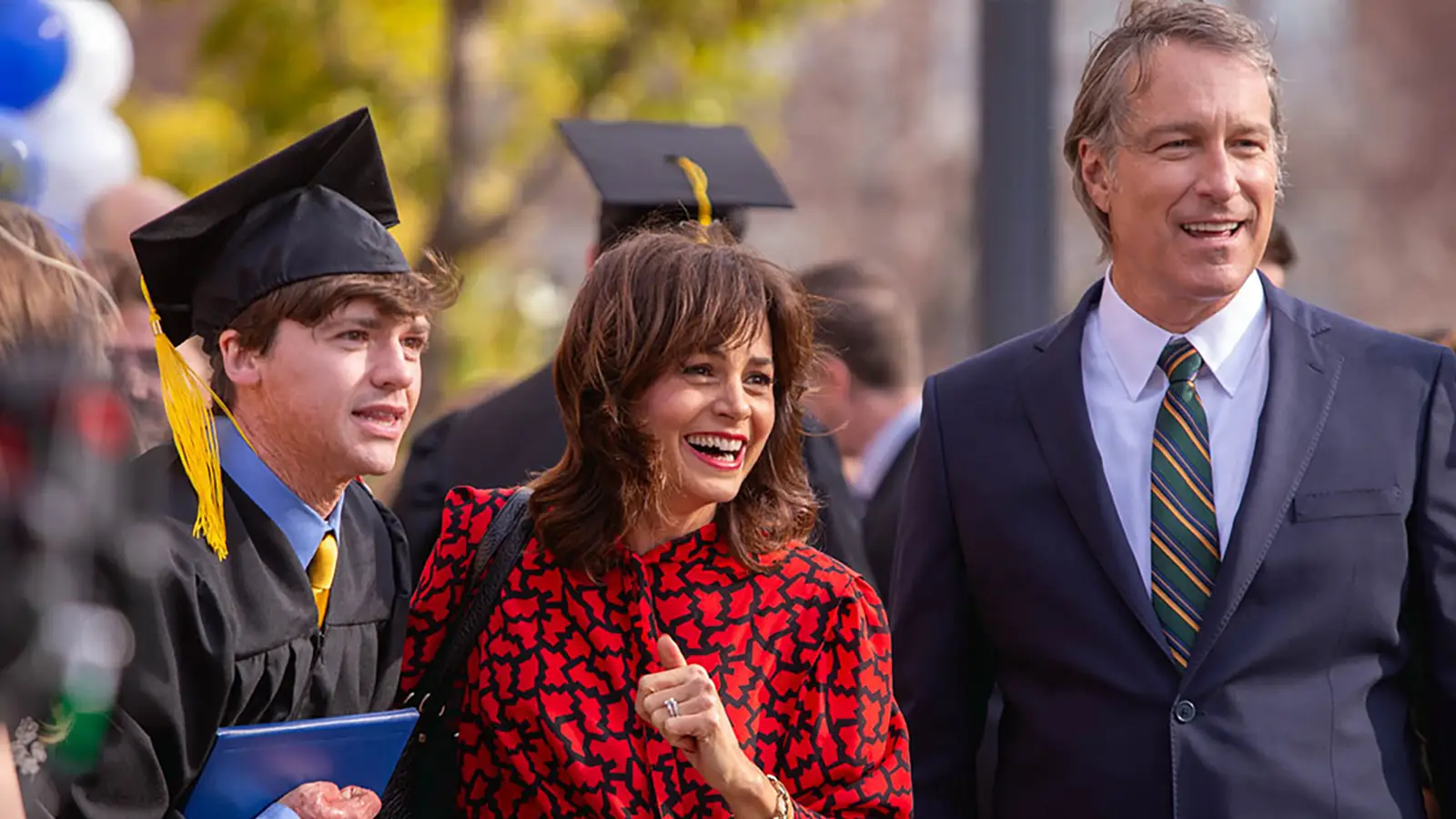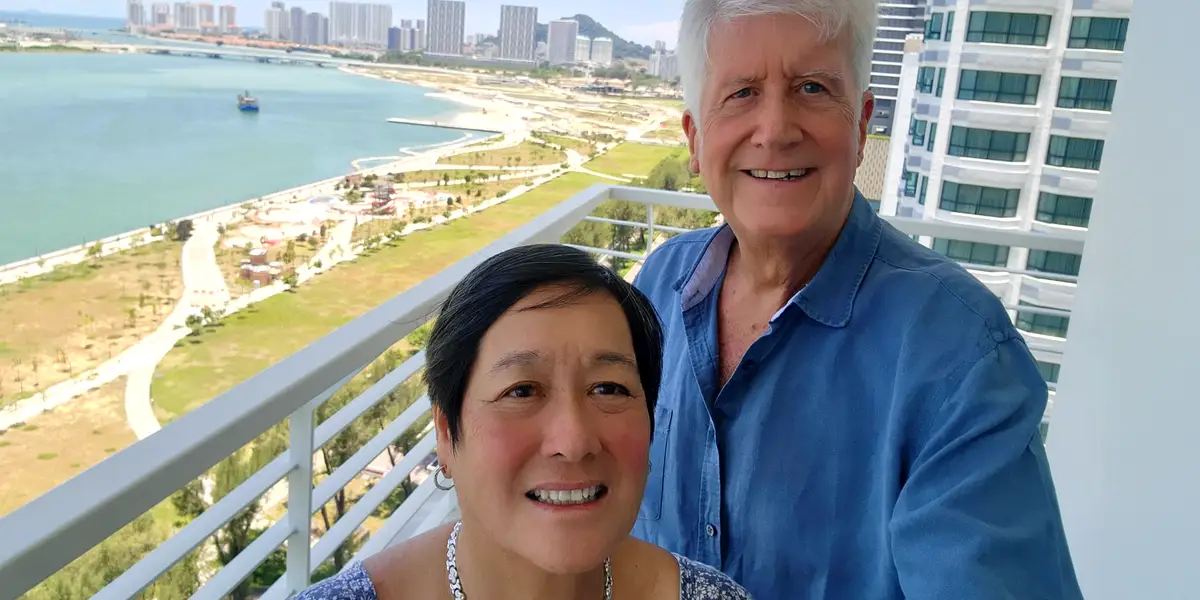Copyright Screen Rant

Soul on Fire tells the inspirational real story of John O'Leary, and one of the movie's stars is sharing how they were specifically chosen to play a key figure in the motivational speaker's life. Hailing from Reagan's Sean McNamara, the film chronicles the story of O'Leary from when he was a child, in which he had a near-death accident resulting in 100% of his body being burned, through his recovery, aided by his family, his faith and National Baseball Hall of Fame announcer Joe Buck. James McCracken and Joel Courtney primarily lead the cast of Soul on Fire as O'Leary, which also includes And Just Like That's John Corbett, A Million Little Things' Stéphanie Szostak and William H. Macy as Buck. Hitting theaters on October 10, the film has been off to a strong start, currently holding an 80% approval rating from critics on Rotten Tomatoes and a near-perfect 98% from audiences. In honor of the movie's release, Joe Deckelmeier interviewed Stéphanie Szostak for ScreenRant to discuss Soul on Fire. When asked about what drew her to want to help bring O'Leary's story to the screen, the star revealed she and her husband had become fans of his "15 years ago" after seeing the motivational speaker at a company event and "came home so moved" by him: This was early on in John's career, and he said there were probably 40 people there. "We were all bawling." And he came home with a book that John's parents wrote called Overwhelming Odds. I was so moved by this story, not only the story, but the way that John talks about all the community that showed up, that rallied around him, and the impact we all have on one another's lives. John has a way of talking about his story without making it about him that's really moving. Around the time of the release of his memoir, On Fire, on which the film is primarily inspired, Szostak also came to learn that O'Leary has a podcast in which "he interviews people who have stories of adversity", something the star finds "really inspiring". When doing press for her work on ABC's A Million Little Things, her husband even encouraged her to ask O'Leary to have her on the show, which became the starting point for her eventual Soul on Fire role: I wrote him a letter and told him what an impact he had had on our family, and he had me on his podcast and at the end of the podcast he said, "One day they're going to make my book into a movie and I will call you." And I thought, how sweet of him. But no one ever does that. But sure enough, we kept in touch, and then we became friends without ever meeting. And then, he texted me, told me the movie was happening and asked me if I'd play his mom, and I said, "I would be honored." With the part now hers, Szostak set about ensuring she would play O'Leary's mom, Susan, with a sense of authenticity, beginning with her voice. Acknowledging her French upbringing has instilled her with the appropriate accent, the star worked with an "amazing" dialect coach to better match the O'Leary matriarch's St. Louis accent, albeit with a routine "you would never think" could work: What she did was have me watch a lot of the videos of Susan O'Leary without sound...just to start watching how she moves her mouth, and then taking those movements and making them my own, and then only later looking at the sound. Then, I also read her book again, listened to her own son's podcast. The idea was, "Okay, I do all this preparation. I also see how my own story relates to hers, and then get on set and let it all go and just be present." But once I got on set, I met Susan, which was unbelievable. She came to the set a lot, and seeing her in the chair in video village was an absolute gift. It was not pressure. It just reminded me that this is somebody's story, and we're there to honor it. Another unique way Szostak sought to bring Susan to life was by having discussions with her about the "earliest memory of [her] life", which was a creative trick she "read in an acting book" early in her career. The matriarch recalled her days helping to care for her grandmother, which the star felt was a "glimpse into what she's on this earth to do", that being to "serve people and care for people": I actually asked her, "Do you remember your earliest memory of your life?" And this is something that I had read in an acting book, even if you're not playing a real person, to wonder and ask yourself, "What is this character's first memory?" She said that when she was little, their grandmother lived in their house and her and her sister would play a lot, but then she had to help her grandmother wash her back. She said, "One of my earliest memories was hearing my grandmother say, 'Susie, come help me wash my back.'" And I thought, "Oh my gosh. Her earliest memory is of caring for somebody." It wasn't really a caregiver, but just helping somebody wash their back. And then, she truly was a caregiver most of her life for her son and her husband, who had Parkinson's disease for 30 years. Everything Else Szostak Shared About The Importance Of Soul On Fire ScreenRant: Now, I read that John said that his mom's tough love was a huge part of his survival. How did you approach showing that balance of strength and tenderness with tough love? Stéphanie Szostak: Yeah, it was tricky because in the script, at one point, there's a scene where she asks — for the people who don't know, his fingers get amputated, and when he's back home after five months of being hospitalized, dozens of surgeries still in a wheelchair. She asked the piano teacher to come back to give him piano lessons. But it's shocking, the words that she says. The little boy, John, says, "Why is Mrs. Whitaker here?" And she says, "It's time for your piano lesson." And he's like, "You want me to take piano lessons?" And he puts his hands up, and she says, "I don't know what makes you think you're so special, but you're no different than your brothers and sisters. My kids take piano lessons, and you're going to have to take piano lessons. That's the end of it." And I mean, that can seem really brutal, but John now plays the piano, but I thought, "This must have not been easy for her to do." As a mom, all you want to do is ease your child's pain. You want to do things for them so they don't struggle. So this was courage. I saw it just as courage, and she had to be stern in order for her son to do it, but ultimately she helped him believe in himself when he didn't know he was capable of doing those things. ScreenRant: Now, you talked about personally connecting with this film, but this film leans so much on family, faith and community, which you mentioned earlier too. How did those themes hit you personally? Stéphanie Szostak: I see the film really being about community and the difference we make in one another's lives, and how important it is to show up for one another, whether it's our families, but also the nurses, the janitor. There's an amazing scene where the doctor, the head doctor at the hospital, says, "Who's the most important person here?" to all the interns, and they're like, "It's you, doctor. Oh no, it's the patient, because he has the will to live." And then he says, "No, it's the janitor. Because if there is an infection for a burn victim, that's fatal." And then, there's another scene that really broke my heart with Nurse Roy, who cared for John when he was little. When he sees John again some 20 years later, he admits to John, "I always knew I did my job, and I did it well, but it is not until today that I know that I mattered." And I think a lot of us sometimes don't know that we matter, and this movie helps you see that you do matter, and we make an impact every day with the people we encounter, and we can choose what that impact is going to be. ScreenRant: I love that scene that you just spoke of. Now, one of the big ideas about John's story is that resilience comes from relationships, which we kind of explore in the film. Do you feel that's been true of your own life and career? Stéphanie Szostak: Absolutely. We can't do it alone. We have to be accountable. We have our own responsibility in deciding how we're going to take the next step forward, but we can't do it alone. We need people who support us, people who push us, people who make us laugh. We need connection. That's what it is to be human, is to connect, regardless of our stories, of our beliefs, of our environment. We're all humans and we can connect. And this is why I love this story, because that's what it's about. ScreenRant: Now, you've spoken before about grief and resilience shaping your perspective. Did this film shift or deepen that for you in any way? Stéphanie Szostak: It just reaffirms all of this. And what it did also is made me, again, realize when I might be complaining, when I might feel like, "Oh, things are not easy." Just to remember what John and his family went through, who he is. He always likes to say, "It's so easy to say, 'Why me?'" And he did that himself, and we all do. But when we hear ourselves say that, that then we can ask the follow-up question, "Why not me?" ScreenRant: Now John's story is about ordinary people rising up to extraordinary circumstances. What do you hope audiences take away after watching the film? Stéphanie Szostak: I think we're all going to take away something different, depending on what our life is like. But I hope they enjoy the movie, and I hope they go to see it in theaters, experience it as a community. That they go with their kids and that it sparks conversations. Maybe asking one another, "Who was your Jack Buck? Who was your Nurse Roy? Can I be somebody's Nurse Roy? What about tough love, mom?" I actually asked my own son this. I was like, "Hey, do you think I gave you some tough love?" And then he said, "Yes, you did, but it only works because of the unconditional love." And that was an amazing discussion we had. So I hope it sparks conversations and inspiration. ScreenRant: This role is almost full circle for you because you were introduced to this story about 15 years ago. Here you are playing Susan now looking at your career. Where does this role land in terms of meaningful impact for you? Stéphanie Szostak: Very meaningful. It feels different, because first of all, it's a true story. I've never been a part of a movie or played a true character before. Because I was truly inspired by John, he made the difference in my life, in my husband's life. So, to be a part of it is truly an honor, to talk about it, to help people not only go see the movie, but look into the message of John through his book. He helps you really shift your perspective in daily life when things are not great, to find more joy, to find more meaning in your life.



